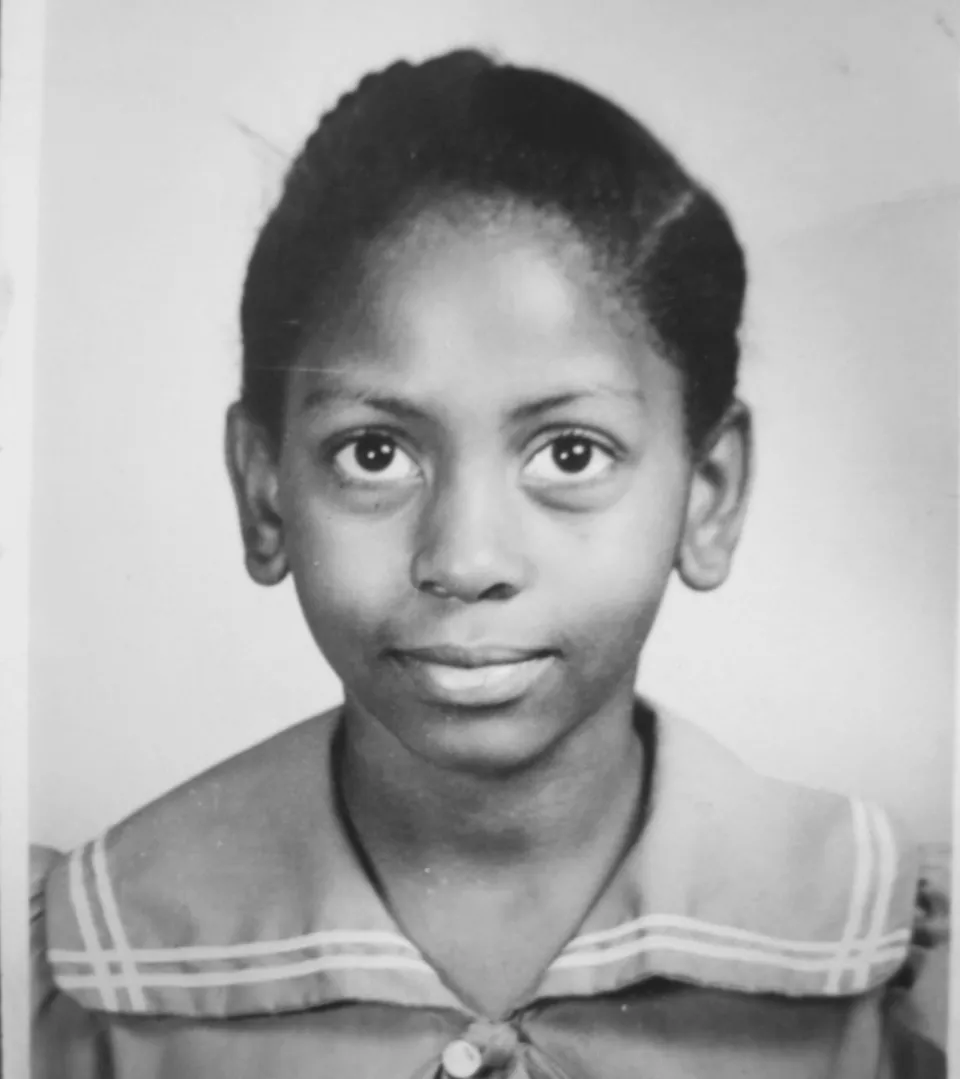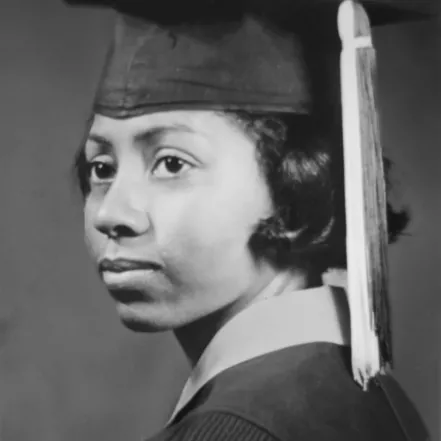The Improbable Life of Ruth J. Simmons
News of Note
The former Smith president’s new memoir explores her journey from sharecropper’s daughter to groundbreaking academic leader
Nicholas Hunt/Office of Marketing and Communications/Prairie View A&M University via Getty Images
Published December 19, 2023
Former Smith president Ruth J. Simmons will speak on campus March 4, at 4:30 p.m. in Weinstein Auditorium.
Former Smith President Ruth J. Simmons begins her new memoir, Up Home: One Girl’s Journey, with these words: “I was born to be someone else.” For anyone familiar with Simmons’ remarkable ascent from a sharecropper’s daughter to “America’s best university president,” as Time magazine dubbed her in 2001, her words might serve as an inspirational—even aspirational—declaration about the possibilities of overcoming circumstances seemingly set early in life.
“When I was a child, there were extremely low expectations for me,” Simmons says on the phone from Houston one afternoon in October. “I was surrounded by laborers, and I had every expectation that I would become a maid, like most of the women I knew. There just weren’t any opportunities for Black people, and it was just so incredibly improbable that my life would be any different, or that I would make it out.”
But Simmons, the youngest of 12 children, did make it out, and her book chronicles how the hardscrabble days of her youth—spent moving from one impoverished East Texas community to another, working in cotton fields, and experiencing demoralizing segregation and discrimination—ultimately made everything else that followed possible. After serving as Smith’s president from 1995 to 2001, she became the first Black president of an Ivy League institution, leading Brown University from 2001 to 2012. She later came out of retirement to head a historically Black university, Prairie View A&M, from 2017 to 2023.
Simmons reflects on her childhood, how words and literature gave her strength, and how even the harshest circumstances failed to break her spirit.
SAQ: Much of your life story has been written about already, in magazine stories, newspaper articles, and academic journals. Was there something in particular that made you want to share your story in your own words?
Ruth J. Simmons: “In all of my positions, I’ve been fortunate to have students who seemed to be quite interested in my story. They asked me lots of questions about how I turned out to be who I am. They found it really hard to imagine how I came from the circumstances of my early life to be the person I am today.”
Your book arrives at a moment when issues of race and racism have once again taken center stage. What do you think your book might contribute to that national conversation?
“The timing is quite coincidental. I did not have any idea that the book would come out at such a moment, although I was aware, in the wake of George Floyd, that writing my story might in some way fulfill a need. What I did not anticipate was the efforts to shut down learning about that history, or to ban books that talked about the subject.”
To that end, what are the consequences of losing stories like yours to future generations who might find inspiration or hope in them?
“In my view, the book speaks to how important it is for us to be fully open to learning about our history and to why it is so critical for young people to have access to stories like mine. Sharing this history, and ensuring access to it, allows for the processing and necessary healing from the events of our past to take place. It is incredibly misguided—devastating, even—for policymakers to think that hiding these stories, our history, is the right thing to do.”
Was there a reason you chose to write only about your younger years and not about the great success that you found in adulthood?
“From talking to students and interacting with other people, it seemed to me that they were most interested in the improbable path that I’ve taken. And that has everything to do with the way I grew up, so if you really want to know about me, you need to start there, at the beginning, because that is what made me the person I am.”
A young Ruth in 1952. Courtesy of Ruth J. Simmons
In looking back at your childhood, did you discover anything surprising about yourself?
“Normally, you rarely have a chance to do a systematic, cause-and-effect analysis of your life, so I am grateful for having had that opportunity to reflect more deeply on some of the things that happened to me. I think what I learned was that my life is really the consequence of having doors seemingly closed to me, but by closing they ultimately left me open to alternative paths. And thanks to my family and good teachers, I took advantage of those alternative paths and ended up where I am today. My life itself was a catalyst for the most impactful things I have done. When it comes down to it, I think that I was just always in pursuit of a better life.”
One thing that struck us in reading your book was that even under the harshest conditions, you remained a happy and content child. Where did that resilience and positive attitude come from?
“Oh, I think it certainly had to do with the fact that I was part of such a large family and that those family members were very present in my life. I felt protected by their presence, and I felt part of something that mattered. From one part of my childhood to another, that was a constant. My family has been the center of my life. When I lost my mother, I still had family. When I went off in different directions and came back home, I still had family. I was able to make a life for myself because the people who supported me never left my side, and that is what kept me hopeful.”
When you started going to school, you began really listening to how your teachers talked, and you write that you began “collecting” words so that you could sound like your teachers. What role did that play in your development?
“Frankly, the power that one gains from being able to express one’s self is one of the most defining elements of one’s life, especially for a child who grows up feeling every bit as powerless as any person could be. When I learned that I could use language to express myself—in some cases better than others—that gave me agency for the first time in my life. I suddenly felt a sense of power over my circumstances.”
Literature played a major role in your development as well.
“It did. I was desperate to understand the ways in which other people shared my circumstances. I wanted to know: Did others suffer as I suffered? Were they hungry as I was hungry? Did they feel powerless as I felt powerless? The great thing about literature is that it relates similar kinds of experiences, and suddenly you don’t feel so alone. You don’t feel that you are being particularly punished, so it’s enormously helpful. That’s why it’s so important to have reading programs for young children, so important for them to have access to libraries.”
You write about many of the strong women in your life—your grandmother, your mother and sisters, your teachers. What did you take from their examples?
“At a time when women were supposed to deliberately aim for less, I came out of that environment feeling that I was entitled to be an equal. That’s what these women gave me: a sense that I didn’t have to be less than, a sense that I mattered. My mother, my grandmother, my sisters have meant everything to me because they showed me how to live and how to be a complete person.”
Header photo by Nicholas Hunt/Office of Marketing and Communications/Prairie View A&M University via Getty Images



